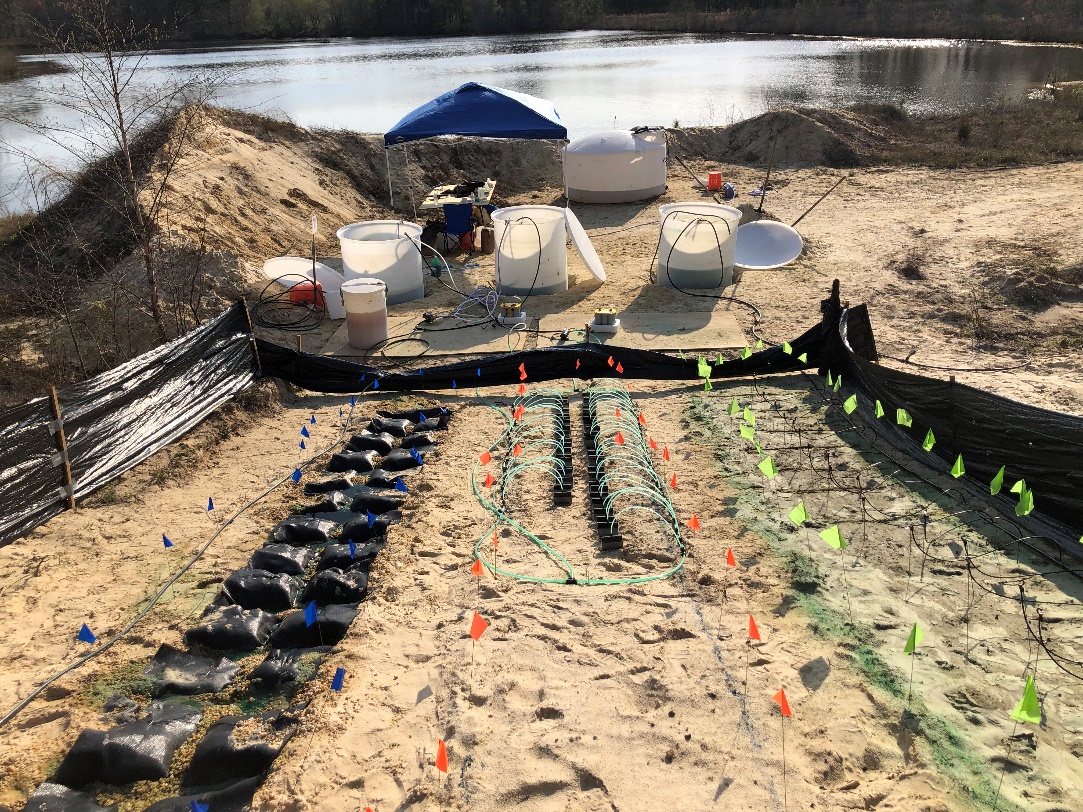Roadbeds supporting coastal highways in North Carolina (e.g., Highway 12) are susceptible to erosion during large storm events. Reinforcing vulnerable coastal subgrades and slopes can reduced the erosion potential and the coastal infrastructure can be maintained. Bio-mediated soil improvement methods can be used to stiffen sandy subgrade and slopes and reduce the soil’s susceptibility to erosion. Microbial induced carbonate precipitation (MICP) treatment methods utilize natural soil bacteria to hydrolyze urea as a nutrient source and produce calcite cementation within the soil matrix. This bio-cementation process can be used to mitigate damage to highway subgrades and slopes by implementing the process in situ. The overarching goal of this project is to implement a bio-mediated soil improvement method in situ and monitor its performance when exposed to natural conditions (e.g., weather fluctuations, precipitation, surface water, etc.). In order to implement field trials, a laboratory program was performed to develop the appropriate treatment method (e.g., level of cementation) to reduce erosion and increase shear strength. Furthermore, the ability of vegetation to take root post-treatment was evaluated.

MICP was successfully implemented in an Ahoskie, NC field site as a soil improvement method for shallow depths. Multiple treatment application techniques were assessed, and the surface spraying technique demonstrated the highest level of cementation near surface, and more uniformly covered a larger area of the slope. Dynamic cone penetration (DCP) tests were performed to have an assessment of soil improvement along the soil profile. All test plots exhibited a significant penetration resistance improvement either in depth or surface. Impinging jet tests, pocket penetrometer, and initial penetration depth measurements were completed to evaluate the surficial soil improvements and erodibility resistance. Surficial strength and erodibility parameters significantly improved with increase in mass of calcium carbonate. A higher erosion resistance compared to the values reported in literature for saturated soil treatment is the results of the unsaturated MICP-treatment and a more efficient cementation bond. Strength values measured with pocket penetrometer were also shown to be consistent with laboratory unconfined compression tests with varying cementation levels. The permanence of the stabilized soil was confirmed by monitoring the treated soil with time and after extreme environmental conditions. MICP treatment experiments with vegetation indicate that up to a certain level of cementation, both MICP soil improvement and plant growth can coexist.
